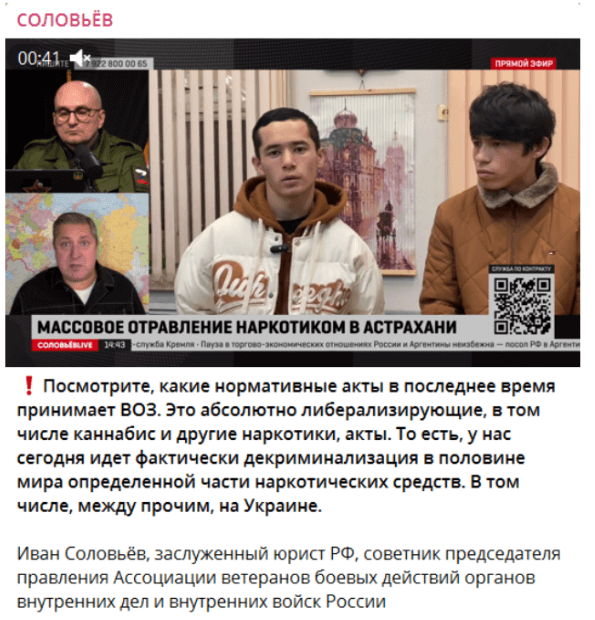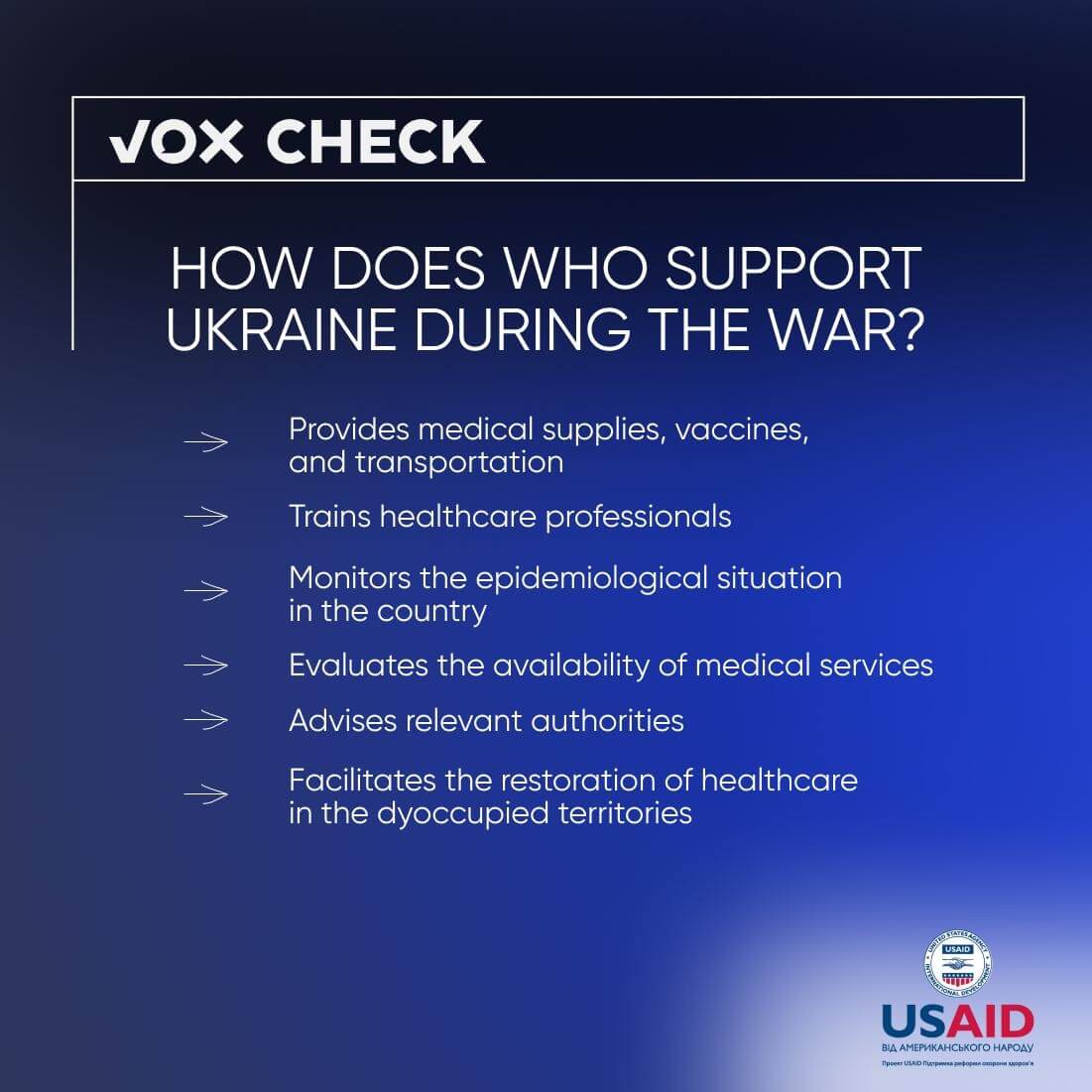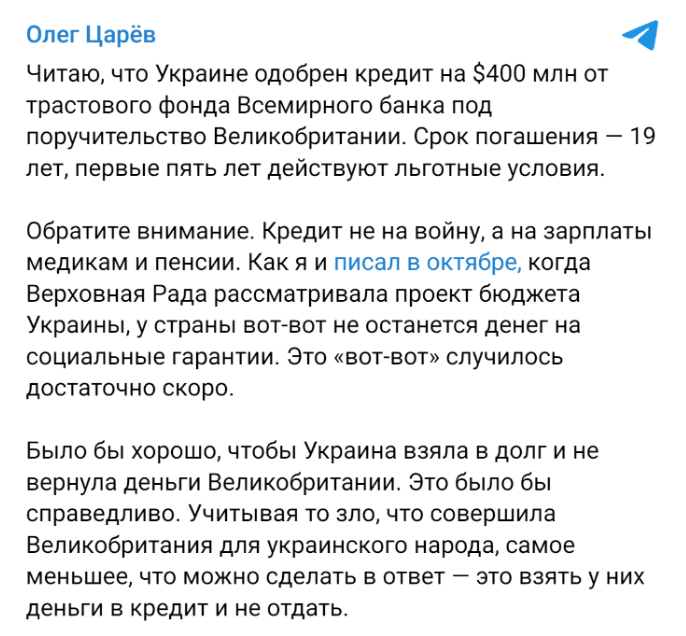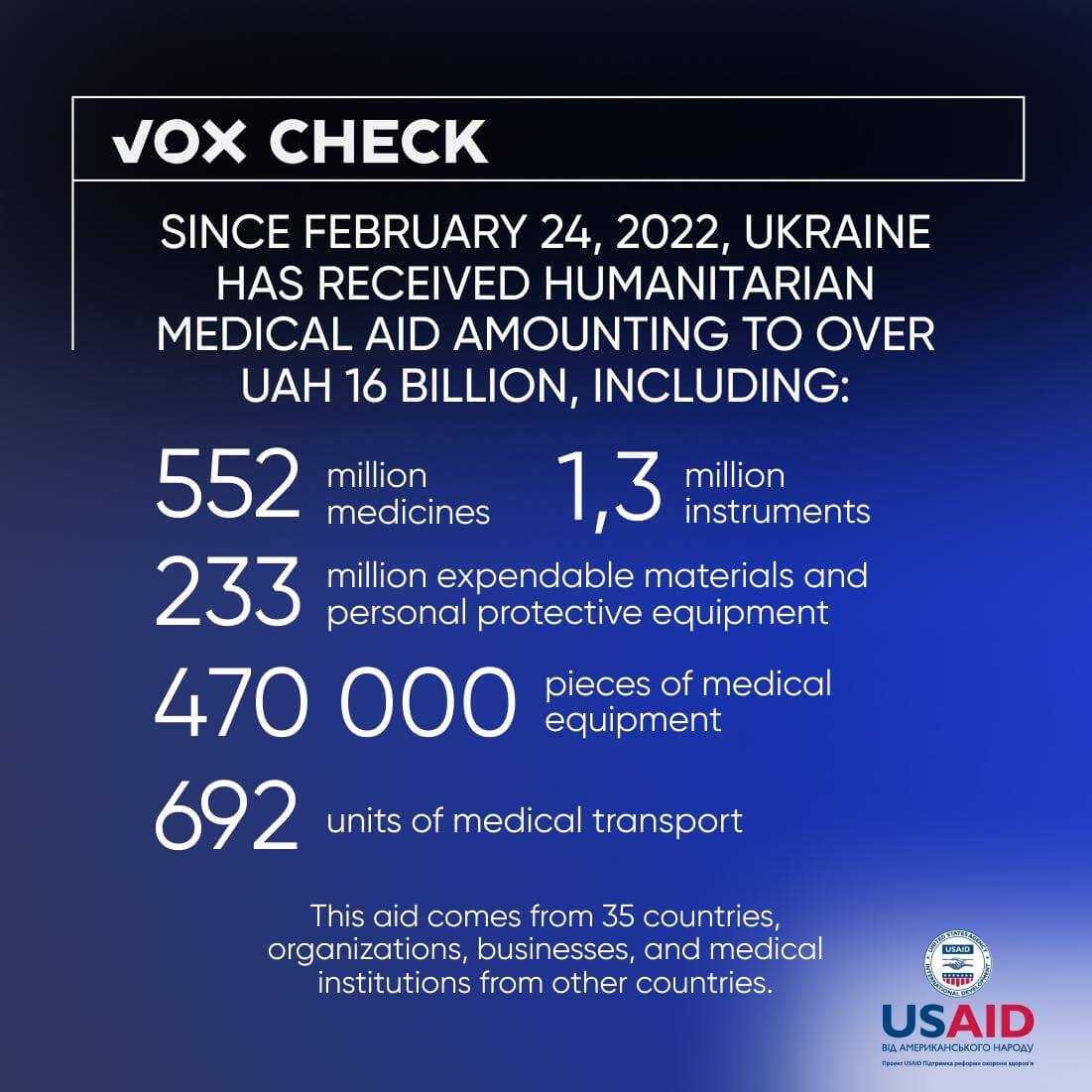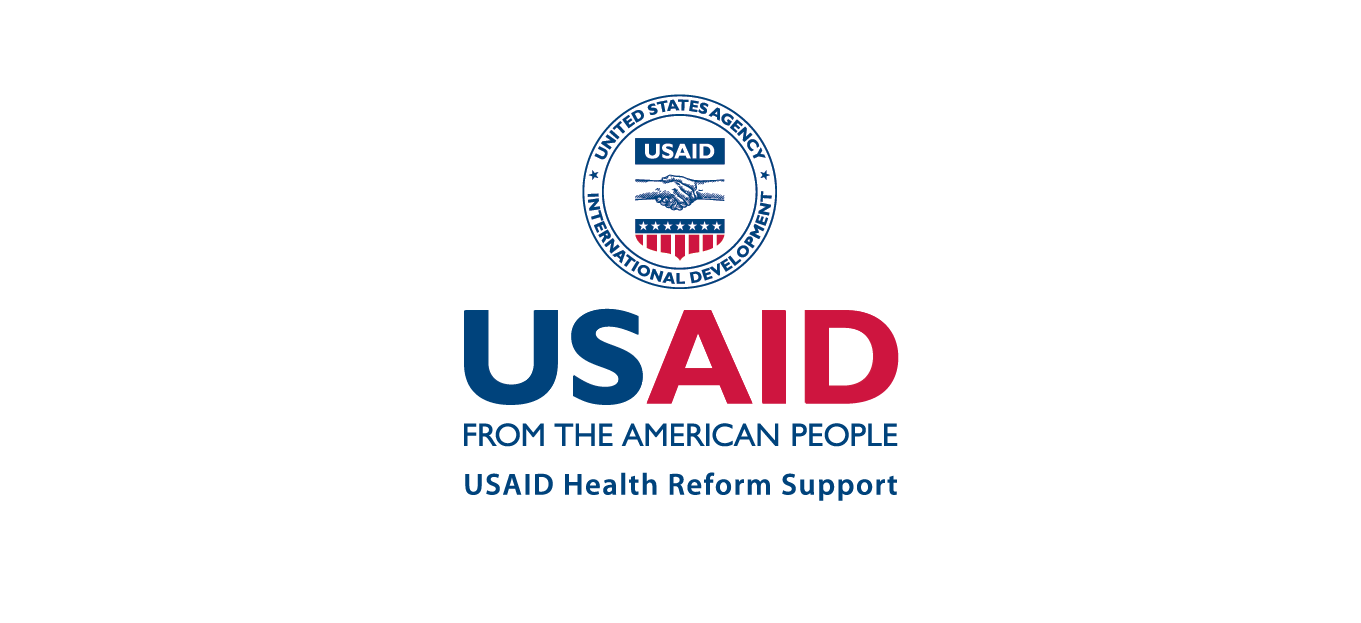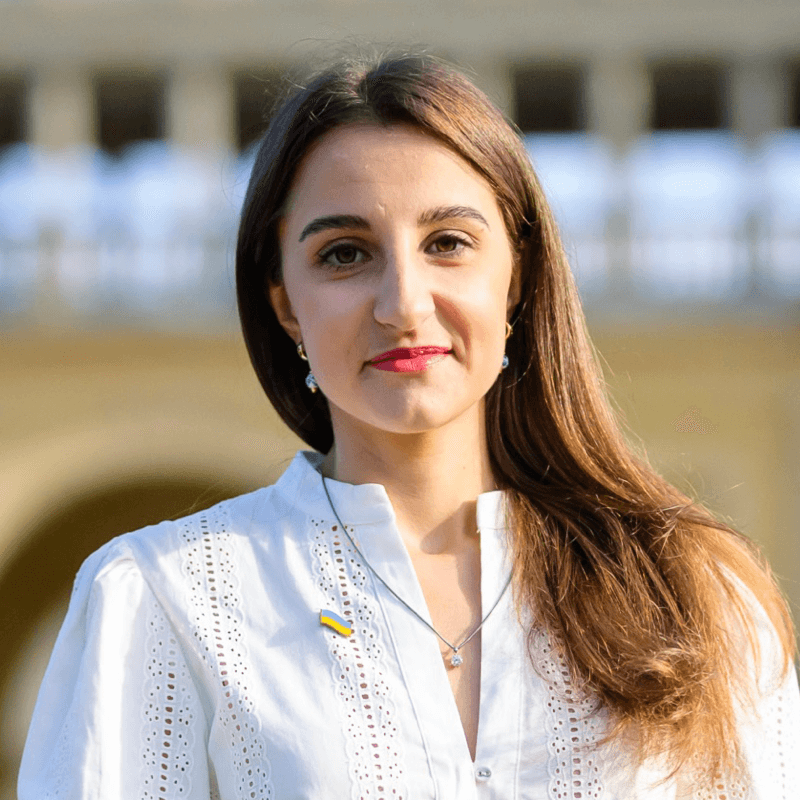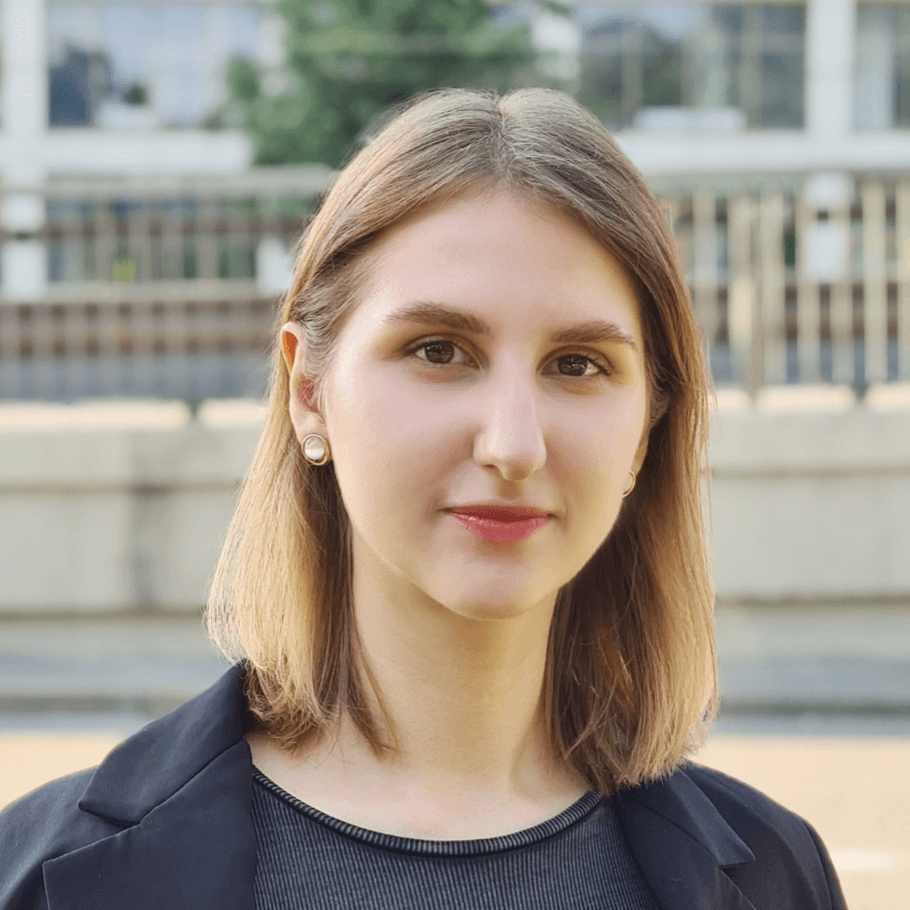Ukrainian collaborator and former deputy Oleh Tsariov spread fake information about Ukraine’s state budget. He claimed that since Ukraine had run out of funds for social payments, the World Bank had allocated money for doctors’ salaries. Additionally, Russian resources once again promoted disinformation about the legalization of medical cannabis, asserting that Ukraine purportedly wants to decriminalize drugs. Allegedly, the Ukrainian authorities decided to take such a step, listening to the World Health Organization (WHO).
With the support of the USAID Health Reform Support project, VoxCheck analyzes and refutes public health narratives spread in the information space of Ukraine, Belarus, and russia on a weekly basis.
Disinformation: WHO promotes the decriminalization of drugs in Ukraine
Information is spreading online claiming that the World Health Organization (WHO) is adopting acts that liberalize cannabis and other drugs. This purportedly leads to the decriminalization of narcotics in various countries worldwide, including Ukraine.
Screenshot of the post
What’s the reality?
The WHO has not adopted acts regarding the liberalization of drugs. The organization does not influence the legislation of member states but advises the UN Commission on Narcotic Drugs (CND) on the potential harm and benefits of using specific narcotic substances in treatment. Ukraine plans to legalize only medical, not recreational, marijuana or other drugs.
The WHO consistently opposes drug abuse and conducts Forums on Alcohol, Drugs, and Addictive Behaviours. During the 2023 gathering, participants discussed progress in measures aimed at strengthening the prevention and treatment of dependencies. Within the organization’s structure, there is a department combating alcohol, drugs, and addictive behavior, which focuses on developing, disseminating, and supporting the implementation of tools for the prevention, detection, diagnosis, and treatment of diseases caused by the use of psychoactive substances.
The World Health Organization’s Expert Committee on Drug Dependence (ECDD), composed of experts in psychoactive substances and medicine, assesses the risks and benefits of using narcotic drugs for medicinal purposes. This committee meets annually and recommends to the UN Commission on Narcotic Drugs whether a specific psychoactive substance should be included in the list of drugs under international control. The UN Commission consists of 53 Member States, and the International Narcotics Control Board oversees the implementation of the commission’s recommendations.
Additionally, the WHO has recommended to the UN Commission not to include preparations based on medical cannabis (with pure cannabidiol) in the list of drugs under international control to allow its use for therapeutic purposes. In 2020, the UN Commission recognized the therapeutic use of medical cannabis. However, the WHO emphasized that its expert conclusions are advisory, and each country can implement control measures within its territory and decide whether to legalize medical cannabis or not.
Cannabidiol is a substance found in medical cannabis. It lacks pronounced psychoactive effects, is non-addictive, and is not suitable for recreational use. It exhibits strong anti-inflammatory and antiepileptic properties.
Therefore, the WHO did not compel the Ukrainian government to legalize medical cannabis or recreational drugs. Scientists from various countries have noted the positive impact of medical cannabis-based preparations in alleviating symptoms of migraines, post-traumatic stress disorder, and chemotherapy side effects, as well as for the prevention and treatment of gastrointestinal disorders and multiple sclerosis.
The draft law on cannabis legalization aims to allow people in need of treatment with medical cannabis-based medications to purchase them with a prescription from pharmacies. However, it does not decriminalize, meaning it does not remove responsibility for individuals possessing recreational cannabis in small quantities. Ukraine’s Minister of Health, Viktor Liashko, explained that medical cannabis-based medications would be part of a comprehensive effort to address the negative consequences of war on mental health. As of the writing of this text, amendments have been made by members of parliament to the draft law prepared for the second reading. The discussion does not involve the legalization or decriminalization of recreational cannabis or other narcotics. In Ukraine, the sale of narcotic or psychotropic drugs is only permitted with a prescription.
Source: Ministry of Health of Ukraine
Disinformation: The state budget of Ukraine lacks funds for medical payments
Russian Telegram channels are spreading information suggesting that the country has run out of funds for social guarantees, and without international support, the Ukrainian healthcare system is collapsing. As a result, the United Kingdom allegedly allocated $400 million, presenting this as a “gift” to Ukrainian healthcare workers and pensioners.
Screenshot of the post
What’s the reality?
On November 23, 2023, under a guarantee, the United Kingdom provided Ukraine with $400 million. The funds were transferred through the World Bank’s Trust Fund. The credit was extended on favorable terms, with Ukraine obligated to repay the debt over 19 years and having a grace period of 5 years. The money from the United Kingdom is indeed intended partly for compensating pension payments and medical workers under the Medical Guarantees Program.
Kremlin propagandists are once again attempting to discredit the healthcare system in Ukraine, claiming that the country is doing nothing for its residents and they are forced to “survive” through international aid. Ukraine does depend on international assistance, but this is occurring due to daily Russian shelling and the damages inflicted by Russian forces.
However, this still does not mean that the state has not planned expenditures for the medical and social sectors. In 2024, the Ministry of Health of Ukraine will receive almost UAH 202 billion from the state budget. Of this amount, almost UAH 159 billion will go towards financing the Medical Guarantees Program. The statements made by the Russians are unfounded because the state not only allocates funds for healthcare but also increases these expenses every year. Read the previous issue for more details on the budget changes compared to 2023.
In addition, in May 2023, the government raised salaries for healthcare workers operating in the active combat zone and on the front lines. Therefore, the minimum wage for doctors, pharmacists, and professionals in the healthcare sector or with higher non-medical education should be at least UAH 28,000. Meanwhile, the salaries of healthcare workers in other regions remained unchanged, with the last increase occurring in January 2022.
Russians also write about the “collapse” of the healthcare system in Ukraine but fail to mention who exactly is destroying it. According to the Ministry of Health of Ukraine, as a result of Russian shelling since the beginning of the invasion, 193 medical facilities have been completely destroyed, and 1468 objects have been damaged.
Since February 24, 2022, international organizations and foreign governments have been providing additional assistance to Ukraine in the field of medicine. For example, in July 2023, the European Union allocated €4.6 million for 9 projects of the Ministry of Health of Ukraine. In total, humanitarian medical aid is provided by about 35 countries, international and partner organizations, Ukrainian businesses, and so on. According to Chief Sanitary Doctor Ihor Kuzin, over 170 international partners are working in the Ukrainian healthcare sector. Overall, during the period of the invasion, Ukraine received humanitarian medical aid amounting to over UAH 16 billion.
Source: Ministry of Health of Ukraine
This information piece was produced with the assistance of the United States Agency for International Development (USAID), provided on behalf of the people of the United States of America. This article’s content, which does not necessarily reflect the views of USAID, the United States Government, is the sole responsibility of Deloitte Consulting under contract #72012118C00001.
Attention
The authors do not work for, consult to, own shares in or receive funding from any company or organization that would benefit from this article, and have no relevant affiliations
